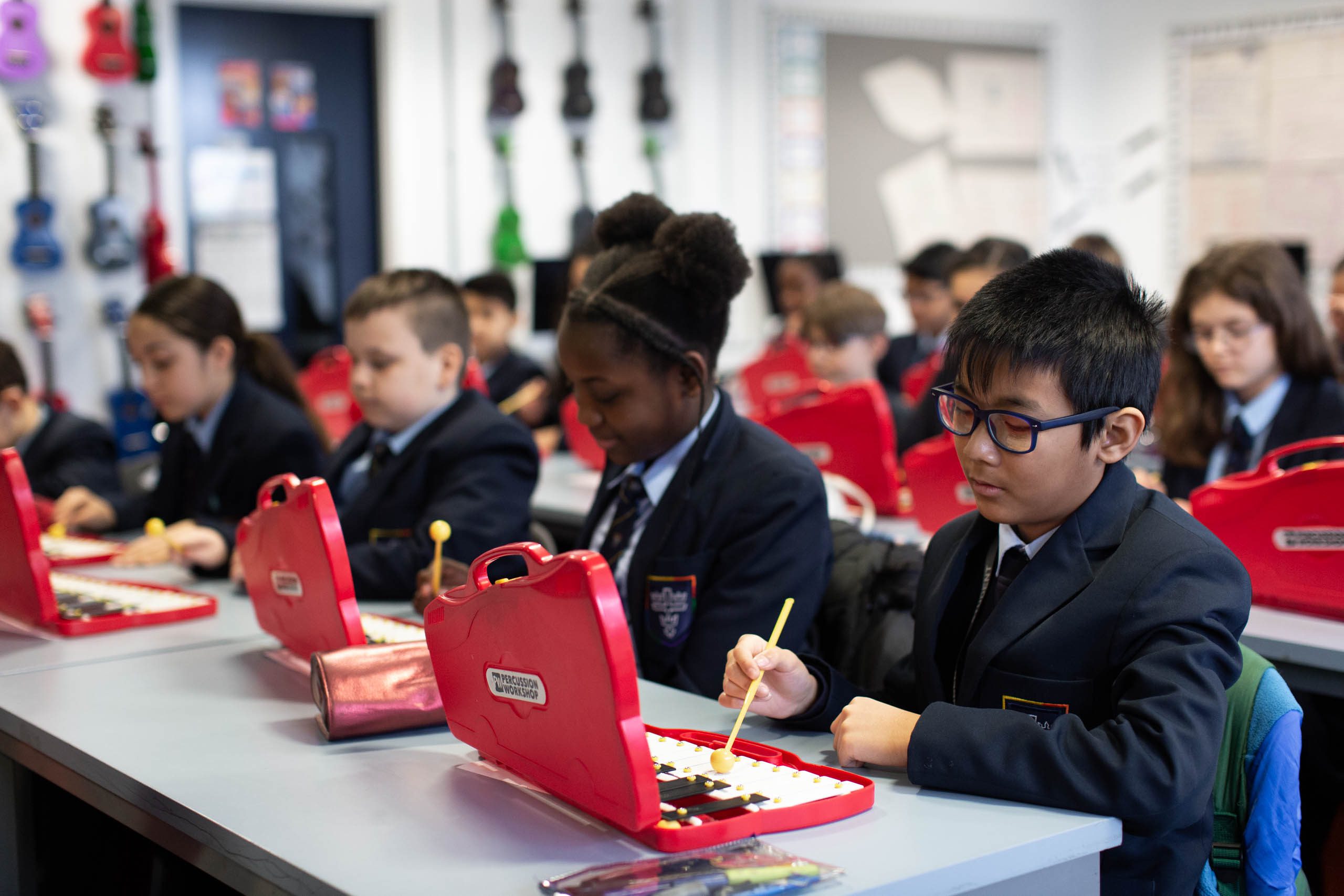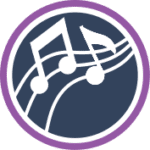The Music curriculum is designed to follow the three disciplines: Performing, Composing and Listening & Appraising. These three elements root our curriculum, and branch out into a mixture of academic work and practical skill development.
We will develop subject specific skills including: reading and writing staff notation; analysing scores; ensemble experience; technical proficiency; and aural awareness. This musical literacy is introduced alongside the practical (theoretical) understanding and application, so that the students can see the relationship between them and how they interleave.
Students will be given the opportunity to hone their practical skills through the use and exploration of a range of instruments. This will help them to explore and develop their creativity and investigate the elements of music via African drumming through to Riffs and Hooks in modern day Pop songs.
Students will gain ensemble experience in their class music which will help them to cultivate team work and organisational skills. This will also help to help the students grow in confidence, fostering a sense of achievement and a stronger belief in their ability.
They will study various musical genres (historical and cultural) and develop an appreciation of works by influential composers, their differing styles, dating from the Renaissance to the 21st Century in addition to using music technology and software to further support their learning and creativity.
Extra- curricular activities enrich class work and offer opportunities, not only to take part in school based performances, but to access performances outside of school. There are also numerous music clubs, potential residential trips and participation in Arts Award possible as part of music at BWA.
Pearson BTEC Tech Award in Music Practice
As the BTEC Tech Award in Music Practice is a practical introduction to life and work in the industry, your students can explore the sector while:
- developing skills, including teamwork, leadership and communication
- developing and presenting music to a brief
- analysing, evaluating and enhancing their learning.
The course has two internally assessed components, and one that’s externally assessed:
Component 1: Exploring Music (30%)
Aim: explore musical styles and techniques, and gain an understanding of roles in the industry
Assessment: internally assessed assignments
During Component 1, students will:
- Explore different styles and genres of music
- Take part in practical workshops to understand the music creation process
- Learn about the different roles within the music industry
- Investigate relationships between different areas of the music industry
Component 2: Music Skills development (30%)
Aim: develop musical knowledge, skills, and techniques and apply them to a music product
Assessment: internally assessed assignments
During Component 2, students will:
- Reflect on their progress, and on areas for improvement
- Choose a job role and explore the skills needed to fulfil it
- Develop a range of skills
- Apply skills and techniques in a music performance, creation or production
Component 3: Responding to a Commercial Music Brief (40%)
Aim: put skills into practice by responding to a brief as a composer, performer or producer
Assessment: externally assessed task
During Component 3, students will:
- Choose an area of the industry that excites them (composer, performer, or producer)
- Explore the brief and come up with possible responses and ideas
- Use relevant resources, skills and techniques to develop and refine musical material
- Present their final response (solo or in a group)
- Review and reflect their approach to the brief and their final outcome

Careers Links
Studying Music allows you to develop a variety of transferable skills that can be applied to a vast range of different career paths. Click here for examples of some of the employability skills Music can provide.
- Where can Music take you?
- Careers using Music
- BBC Bitesize: Careers in Arts & Media
- How to become a singer-songwriter: Lewis Capaldi's story
- How to become a singer-songwriter: Jade Bird's story
- How to become an audio engineer: Tommy's story
- How to become a composer: Grace's story
- How to become a rap workshop leader: Jaidon's story
- How to become a music manager: Colin Lester's story
- How to become a music curator: Jasmine's story
- How to become a radio and podcast presenter: Nick Bright's story

